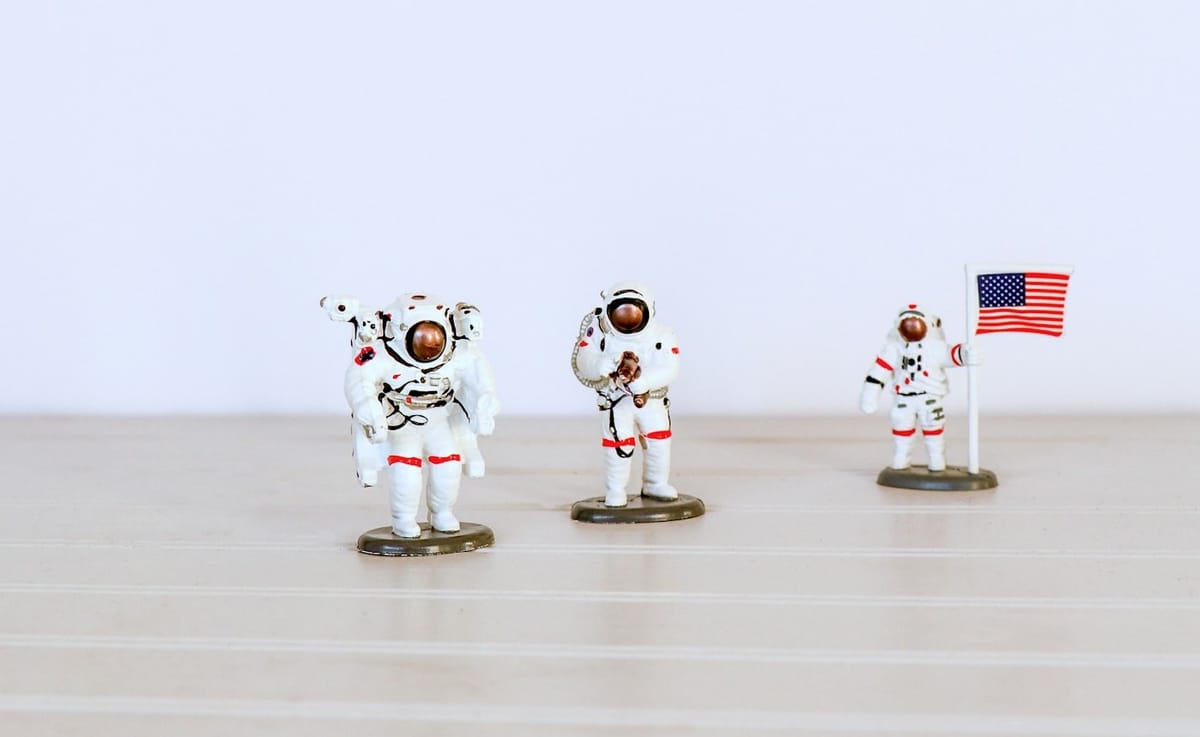Space week day 1: Brain health in space - stress and inflammation.

Spaceflight poses a wide range of brain health challenges for astronauts, extending far beyond the obvious dangers of venturing into space - to advance human exploration (Thx!).
The effects on the central nervous system of being that far away from home are profound, leading to changes in brain function and structure - and potentially long-term health issues after returning from space.
It is not that commonly known that even after returning to earth, they are still at risk - but in a more indirect way. This prolonged risk is primarily due to factors such as ionizing radiation, microgravity, and the various physiological and psychological stressors of being in space.
These environmental conditions can significantly impact astronauts' health, both during missions and in the long term. While the acute effects of these stressors on astronauts are somewhat understood, the long-term consequences, particularly those related to brain function and brain structure, remain a subject of ongoing research.
Oxidative Stress on the brain
One of the primary concerns for astronaut health in space is the impact of oxidative stress on the brain.
Oxidative stress occurs when harmful molecules (called reactive oxygen and reactive nitrogen) are generated in excess, leading to cell damage. The brain, with its high oxygen consumption and limited antioxidant defense, is especially vulnerable to oxidative damage.
Research has shown that prolonged exposure to space conditions, such as microgravity and radiation, increases oxidative stress in the brain, which may contribute to increased risk of neurodegenerative diseases like Alzheimer's and Parkinson's diseases.
Furthermore, oxidative stress can also disrupt the function of the mitochondria, the powerhouse of cells, including mitiochondria in the brain cells.
These findings emphasize the importance of monitoring oxidative stress levelsin the astronauts as part of a broader effort to understand spaceflight-induced brain damage - and perhaps even identify effective biomarkers for early detection.
The blood-brain barrier
The blood-brain barrier is a protective shield of tightly packed cells lining brain blood vessels. It allows essential nutrients to pass through while blocking harmful substances like toxins and pathogens, safeguarding brain function.
The integrity of the blood-brain barrier is crucial for maintaining a stable environment in the brain, and when it is compromised, toxins and stuff that activate the immune system in the brain may enter and cause neuroinflammation.
Studies in humans have shown that exposure to space radiation and microgravity can alter the function of the blood-barrier, leading to potential long-term cognitive impairments.
Some biomarkers related to blood-brain barrier damage, such as specific proteins and molecules found in blood or cerebrospinal fluid, have already been identified. These biomarkers could serve as early warning signs, allowing for more targeted treatments or protective measures to be developed for astronauts on extended missions.
Neuroinflammation
Neuroinflammation is a significant factor in spaceflight-induced brain changes.
It happens when the immune system in the brain, which normally protects the brain, is abnormally activated, turning the immune system against its host, in this case, the astronaut.
Research has shown that astronauts' immune systems are altered during space missions. An example is a change in the levels of cytokines during space flight. Cytokines are small proteins that help cells communicate, especially in the immune system, to regulate inflammation and immune responses. The immune cells of the brain, like microglia, also change during space flight.
New imaging techniques and blood tests could help identify these changes in the brain's immune system early on, offering a more comprehensive way to monitor astronaut health during and after space missions.
In conclusion ..
The effects of spaceflight on the brain are complex and multifaceted, involving at least oxidative stress, blood-brain barrier disruption, and neuroinflammation.
Understanding these effects is crucial not only for safeguarding astronaut health but also for ensuring the success of long-duration space missions, such as trips to Mars, colonization, and beyond.
Ongoing research aims to identify reliable biomarkers that can predict the onset of brain-related issues in astronauts, allowing for timely interventions.
By combining various techniques like neuroimaging, blood tests, and neurocognitive assessments, scientists hope to develop a comprehensive system for monitoring astronauts’ brain health throughout their missions.
About the scientific paper:
First author: Xiao Wen Mao, USA
Published in: Life Sciences in Space Research. November 2024.
Link to paper: https://www.sciencedirect.com/science/article/pii/S2214552424000786?via%3Dihub




Comments ()